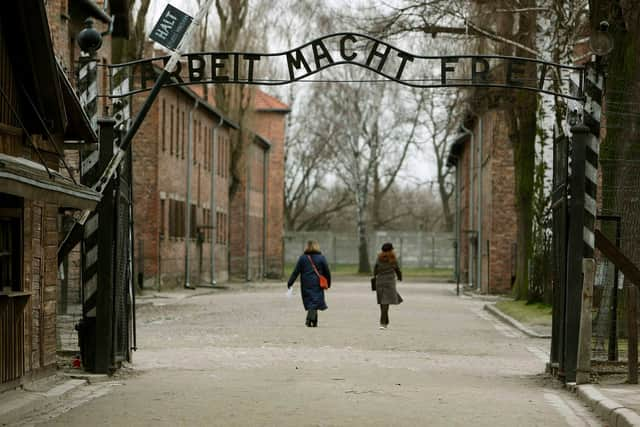Experiences of antisemitism brought me closer to the faith of my family - Alexander Brown
Going for drinks and desperate to build contacts, a staffer had asked about my background, and I’d shared I studied an MA in Jewish History.
Before I’d even finished speaking she had grabbed my jaw, tilted my head to the side to look at my nose and spat out “you don’t look Jewish”.
Advertisement
Hide AdAdvertisement
Hide AdHer friends told me not to report it, stressing I was new and they could be useful.


This was a Tory staffer grabbing me in public to judge my Jewishness, at a time it was supposedly only the Labour party that had a problem.
It took place during the Corbyn years, when antisemitism cases in the Labour party became the new normal, in a tenure that broke friendships and made whataboutery an acceptable excuse for racism.
So many apparent progressives did not care, deciding their ideology was worth more than the experiences of Jews.
It was a depressing, draining time, with the avalanche of antisemitism on Twitter a constant in my life both personal and professional.
Growing up in rural Somerset, there were no Jews that I knew of, yet the word managed to exist as a slur among my peers.
It was a slight without understanding, as children shouted it when people picked money off the floor, or cried “Jew goal” when someone squared the ball for a tap in on Fifa.
Eventually studying an MA in Jewish History, this meant devouring Holocaust texts and realising modules named “relations between Jews and non-Jews through time” were actually about a history of mass murder.
Advertisement
Hide AdAdvertisement
Hide AdWhen my mum and I went to get my laptop fixed ahead of my course, the repair man asked “what do you want to be studying them for?”.
He added he’d been to the death camps, complained there was no thank you sign to those that rescued them, and demanded I explain why they did not overpower the guards armed with machine guns.
My mum pulled over on the way home to cry.
And it’s on my mind again, after Jewish teenagers on a bus were spat at by a gang of men.
All these things have pushed me closer to Judaism, transcending from an interest to a responsibility.
I did not grow up Jewish, and my knowledge was limited solely to it being the faith of my grandparents.
It was getting enough beigels to bring home from the cities, my grandma’s Jewish cookbooks, and my grandpa’s Yiddish outbursts.
My background was something my mum ordered me not to mention, stressing there were places we were not safe and the need to “always have a suitcase ready”.
My family fled persecution in the early 1900s from Mogilev, Hungary, where Himmler later oversaw the mass murder of Jews.
Advertisement
Hide AdAdvertisement
Hide AdThe other side ran from Lomza, Poland, which would lose its entire Jewish population.
Throughout my studies and the texts I read the theme was always remember what happened, and be proud of who you are despite everything.
And I feel that weight, I carry that defiance, yet feel guilty as if I have no right to it.
The late, great Rabbi Sacks once said Judaism was about “belonging without believing”.
I would like to believe I can belong.
Alexander Brown is a columnist with Scotland on Sunday and Westminster Correspondent with The Scotsman
A message from the Editor: Thank you for reading this article. We're more reliant on your support than ever as the shift in consumer habits brought about by coronavirus impacts our advertisers.
If you haven't already, please consider supporting our trusted, fact-checked journalism by taking out a digital subscription.
Comments
Want to join the conversation? Please or to comment on this article.
